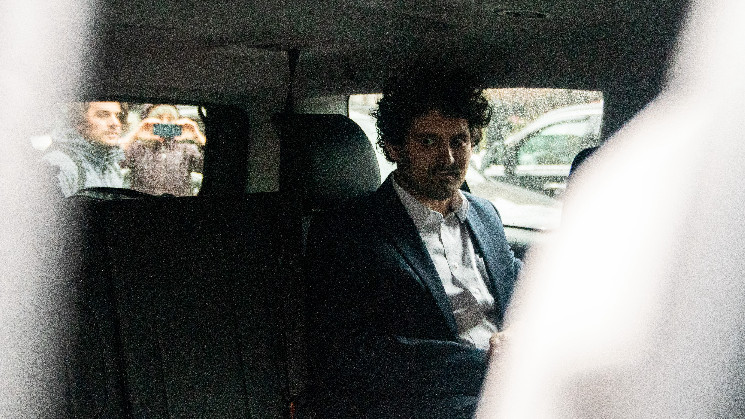It’s been about 10 months since Sam Bankman-Fried was convicted on seven counts of fraud and conspiracy related to the collapse of FTX. It’s been about six months since he was sentenced (in March) to 25 years in federal prison.
In that time, the crypto industry has moved on: markets are up, VC dollars are back, and politicians are once again supporting the industry. Meanwhile, the mainstream media has almost forgotten about the fallen crypto king, SBF himself.
So might a judge and jury see SBF’s case differently should it hear evidence from the FTX founder again?
That certainly seems to be the hope of SBF’s new legal team, which took over his case after his trial lawyers, Mark Cohen and Christian Everdell, stepped down following his conviction. On Friday, Sept. 13, his new lead lawyer, Alexandra Shapiro, filed an appeal to the Second Circuit Court of Appeals, laying out why SBF believes he deserves another hearing.
“In the United States, people accused of crimes are presumed innocent unless and until proven guilty beyond a reasonable doubt,” Shapiro's appeal begins. “They are entitled to a fair trial by a jury. When the government introduces evidence, defendants have the right to rebut that evidence and present their side of the story. That, at least, is how it’s supposed to work. But none of that happened here.”
The 102-page document argues that SBF was unfairly treated at trial, which took place as public scrutiny of the FTX case reached a fever pitch. Shapiro argues SBF was “presumed guilty by federal prosecutors eager for quick headlines,” “presumed guilty by the judge who presided over his trial,” and that the “prevailing narrative” of FTX’s collapse, and SBF’s part in it, was accepted as true, without proper inquiry.
“From day one, the prevailing narrative—initially spun by the lawyers who took over FTX, quickly adopted by their contacts at the U.S. Attorney’s Office—was that Bankman-Fried had stolen billions of dollars of customer funds, driven FTX to insolvency, and caused billions in losses,” the appeal continues.
“Now, nearly two years later, a very different picture is emerging—one confirming FTX was never insolvent, and in fact had assets worth billions to repay its customers. But the jury at BankmanFried’s trial never got to see that picture.”
SBF has long maintained that FTX was never really insolvent and it was forced into bankruptcy unnecessarily. It notes that, under the bankruptcy settlement, nearly all its customers are being made whole. Shapiro says Judge Lewis A. Kaplan deprived the jury of “Brady” evidence favorable to the defendant, including that SBF made good investments (such as in Anthropic, the AI startup) alongside the bad ones.
However, lawyers contacted by CoinDesk were skeptical that SBF would win a retrial, given the high bar for such legal turnovers.
“It’s just not very common for an appellate court to double-guess a case like this,” said Tama Beth Kudman, partner at Kudman Trachten Aloe Posner.
SBF’s lawyers would have to prove not only that Kaplan was biased against SBF, she said, and also that such bias led to actions that were prejudicial against SBF.
To allow the appeal to go forward, the Second Circuit Court of Appeals would be saying effectively that it thought the judge in the original case acted inappropriately – something it rarely does, Kudman said.
The appeals court might order a retrial if SBF's lawyers could show that Kaplan had a personal conflict of interest. But there’s no evidence for that, thus far. “Kaplan is known as a well-tempered, good natured judge. I would have thought he would have stepped aside if there was any reason that he shouldn’t be hearing the case,” Kudman said.
Joshua Ashley Klayman, the U.S. head of fintech and head of blockchain and digital assets at Linklaters, said the appeal may have been timed to coincide with sentencing for Caroline Ellison, SBF’s former colleague and sometime lover.
U.S. government lawyers have not requested jail time for Ellison, noting that the SBF case would have been “difficult to prove” without her testimony. Shapiro may be trying to juxtapose SBF’s steep sentencing with Ellison’s much lighter penalty.
“Without expressing a view on the likelihood of success of Sam Bankman-Fried’s appeal, the timing of his filing may be strategic," Klayman said. "SBF’s appeal was filed on September 13, 2024, three days after the filing of Caroline Ellison’s sentencing memorandum. SBF was sentenced to 25 years in prison, while Caroline Ellison’s counsel has requested a non-custodial sentence."
Klayman said news that FTX creditors are being repaid could help SBF's legal team.
“The mainstream media has reported on FTX’s plans to repay customers. Perhaps SBF and his counsel may hope that, with the passage of time, SBF’s arguments [that FTX customers didn’t lose money] may be viewed in a different light."
 coindesk.com
coindesk.com
